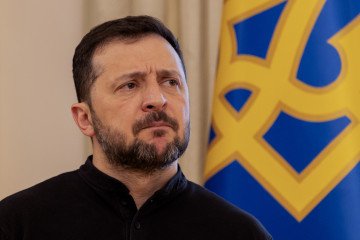- Category
- Latest news
Estonia Removes Voting Rights for Russian and Belarusian Citizens in Local Elections

Estonian President Alar Karis officially announced amendments to the country’s Constitution that revoke the right to vote in local elections from Russian and Belarusian citizens, as well as stateless residents — a decision made public on April 9. The changes will come into force after the next local elections.
According to ERR, citing to Karis, the Estonian Parliament made the decision with full awareness of its long-term implications. Under the new constitutional provision, only citizens of Estonia and other European Union member states will be eligible to vote in municipal elections.
“The decision is legally sound,” Karis stated, adding that the change should not be perceived by those affected as an attempt to exclude them from public life or label them as security threats. He emphasized that the Estonian government must ensure a clear path to citizenship for those who have lived in Estonia for a long time and demonstrate loyalty to the country.
“Only the Riigikogu can guarantee that such individuals have an open route to Estonian citizenship, even if their countries of origin do not provide them with the freedom to choose their citizenship,” Karis added.

The Estonian president also underlined that the protection of internal stability should not remain a rhetorical goal but must be addressed through concrete actions. He noted that even well-intentioned decisions could have significant social consequences.
The constitutional changes were initiated in October 2024, when 28 members of parliament proposed amending the voting rights of non-citizens. On March 26, 2025, the Riigikogu passed the amendment.
Although the law will eventually apply to all third-country nationals and stateless individuals, the changes will not affect voting eligibility for the upcoming local elections in autumn 2025. Stateless residents—often holders of so-called “grey passports"—will still be allowed to vote in that election.
Estonian authorities have cited national security concerns as the primary rationale behind the reform. Prime Minister Kaja Kallas and Reform Party leadership previously stressed the importance of ensuring that foreign nationals, particularly those from Russia and Belarus, no longer influence decisions made at the local government level, highlighting the threat of Russian influence in the Baltic states.
Earlier, on August 20, 2024, Estonia officially severed ties with the Russian Orthodox Church after the Estonian Orthodox Church adopted a new charter declaring full ecclesiastical independence and removing all references to the Moscow Patriarchate.
-c6522ae9e5320af1cc92504c0aaa1b34.png)


-c439b7bd9030ecf9d5a4287dc361ba31.jpg)

-111f0e5095e02c02446ffed57bfb0ab1.jpeg)

